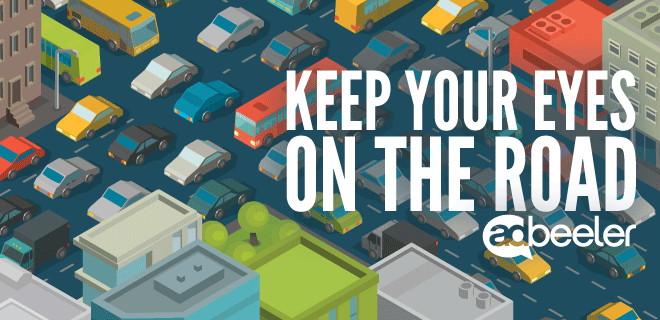
I learned something today–what the term “rubbernecking” really means. I figured it was a New Jersey colloquialism, since half the time we spend on the Parkway or Turnpike is spent actually driving, and the rest is rubbernecking to see who is to blame for all the traffic by having the audacity to get into an accident while we’re trying to get to work.
Turns out the term originates in the 1890s, as reference to tourists. H.L. Mencken, noted “sage of Baltimore,” deemed it “one of the best words ever coined.” Eh, I’ll put it in my top 20.
Why talk about rubbernecking? Because there’s a lot of that going on as we watch the Facebook/Cambridge Analytica story unfold. There’s also a lot of distracted driving going on as we gawk at the shiny new objects – things like blockchain and AI.
Don’t get me wrong – the mess Facebook has walked into is all of our problem. Turns out user data is valuable to users. Did it swing an election or the Brexit vote? I think we on this side of the advertising coin (the ones who actually see the effectiveness reports) are pretty skeptical, but it doesn’t matter. Facebook isn’t going to have a good time, and those of us who depend on user data for our businesses have to be worried now about what we can or can’t do with data in the future.
So why am I considering it a distraction? Because we’re not sure how the Facebook debacle will play out, but we do know that the GDPR countdown has begun, and most companies haven’t done bunkus (another top 20 word of all time for me) about it.
In all fairness, it’s hard to predict how GDPR is going to play out as well. A lot of people are taking the stance that just a little effort should be considered an attempt at compliance, which should get a pass from regulators the first time around. In New Jersey, we all know that if we speed just a little, the first time we’ll only get a warning–so we don’t follow the rules until we get busted.
Of course, anyone who has gotten even a warning knows how it feels to drive for the next couple of weeks, always looking your shoulder trying to drive 55 in a 55 zone while traffic backs up behind you.
GDPR is an opportunity to reshape the conversation with consumers. They need to understand that publishers’ content costs money to produce and is not “free” – there has to be a value exchange. The sooner that conversation happens, the sooner we remake the digital media landscape.
Or, we can further distract ourselves. Blockchain is another area where I see a lot of rubbernecking. Do you really know what blockchain is? Really? It’s not a fraud repellent you spray on impressions. It’s not the solution to all our ills.
Blockchain (and I’m not talking about distributed ledgers, which is another thing) is a way to lock down data. If that data is crap, you’ve created an immutable record of that crap.
Our industry still argues over what an impression is. Do you think blockchain will fix that? Blockchain is bigger than ad tech, and ad tech will bend to the will of blockchain before blockchain changes for adtech.
Or we can just keep throwing the word blockchain around casually, not knowing (or caring) what we are talking about. People used to love to do that with programmatic!
The same applies for AI and machine learning. I am not a naysayer – I think it’s incredible what we’ll be able to do as a society as computers start to jump to the next level. AI isn’t a magic elixir either, though. My thought is that Watson might look at the mess that is adtech and ask to be reassigned to curing cancer.
The fact is, we have some fundamental work to do. All of the topics above will impact our businesses, and hopefully in positive ways. But if I want to use these concepts to get ahead, I need to start doing things the right way, and do the hard work of understanding my clients (consumers and brands) and getting my data as clean as possible. Ignore the distractions and focus on the hard stuff. Done right, we’ll have relationships strong enough to write into blockchain, and you won’t need AI to tell you that.